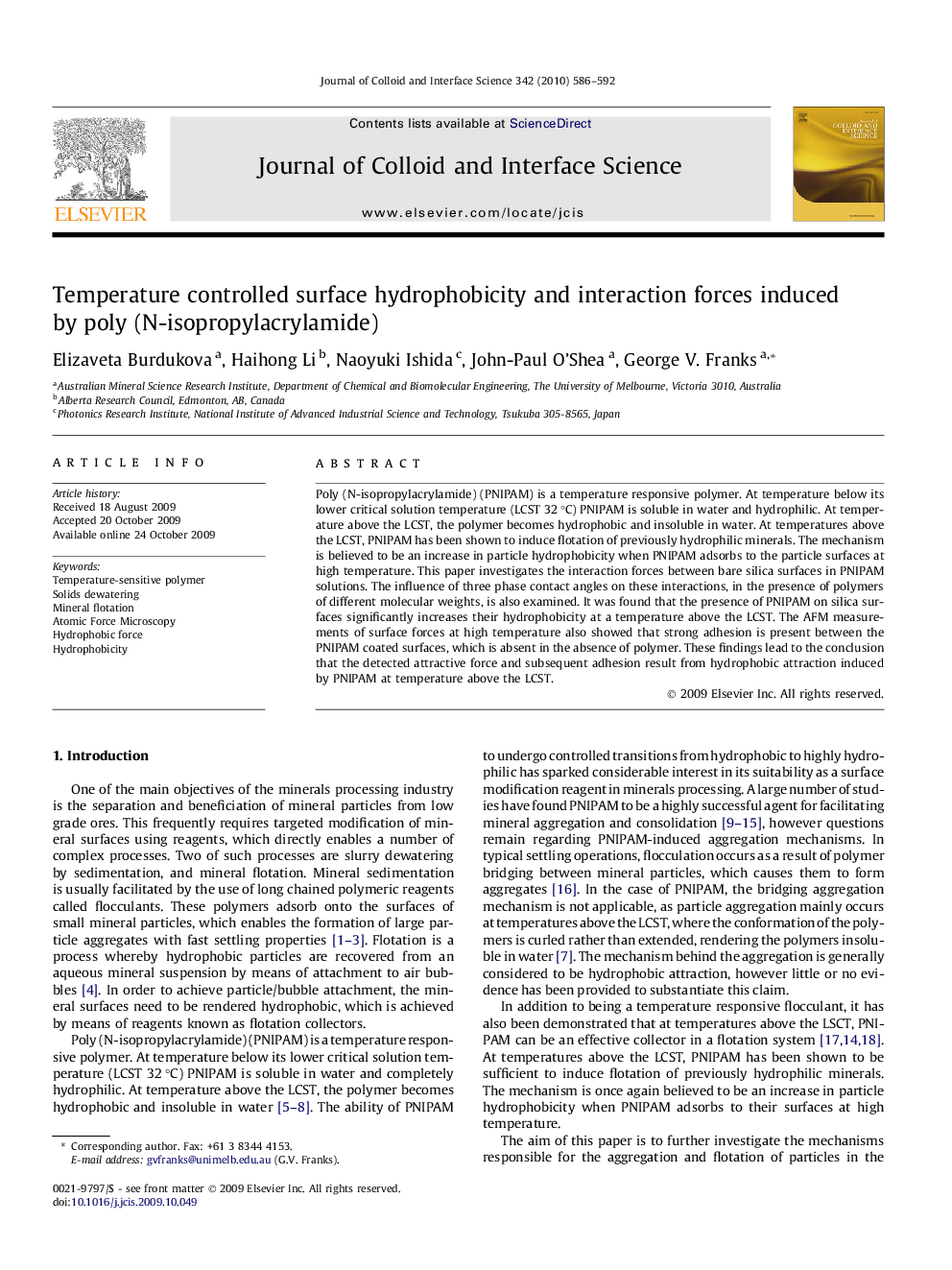| Article ID | Journal | Published Year | Pages | File Type |
|---|---|---|---|---|
| 609562 | Journal of Colloid and Interface Science | 2010 | 7 Pages |
Poly (N-isopropylacrylamide) (PNIPAM) is a temperature responsive polymer. At temperature below its lower critical solution temperature (LCST 32 °C) PNIPAM is soluble in water and hydrophilic. At temperature above the LCST, the polymer becomes hydrophobic and insoluble in water. At temperatures above the LCST, PNIPAM has been shown to induce flotation of previously hydrophilic minerals. The mechanism is believed to be an increase in particle hydrophobicity when PNIPAM adsorbs to the particle surfaces at high temperature. This paper investigates the interaction forces between bare silica surfaces in PNIPAM solutions. The influence of three phase contact angles on these interactions, in the presence of polymers of different molecular weights, is also examined. It was found that the presence of PNIPAM on silica surfaces significantly increases their hydrophobicity at a temperature above the LCST. The AFM measurements of surface forces at high temperature also showed that strong adhesion is present between the PNIPAM coated surfaces, which is absent in the absence of polymer. These findings lead to the conclusion that the detected attractive force and subsequent adhesion result from hydrophobic attraction induced by PNIPAM at temperature above the LCST.
Graphical abstractPhotographs of aqueous drops on poly (N-isopropylacrylamide)(PNIPAM) coated silica glass surfaces at 22 °C and 50 °C, representing the increased hydrophobicity of silica surfaces in the presence of PNIPAM at high temperatures.Figure optionsDownload full-size imageDownload as PowerPoint slide
